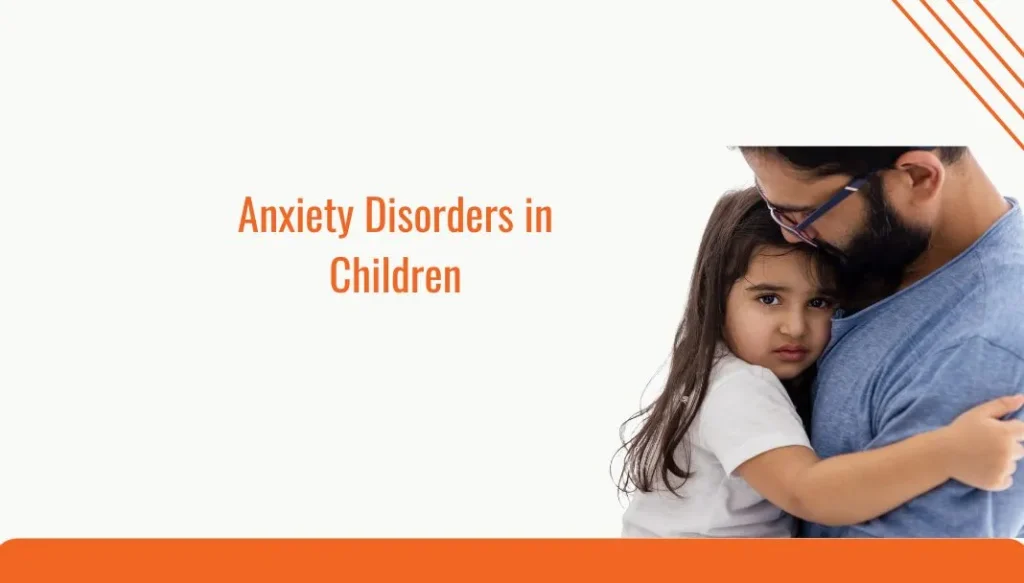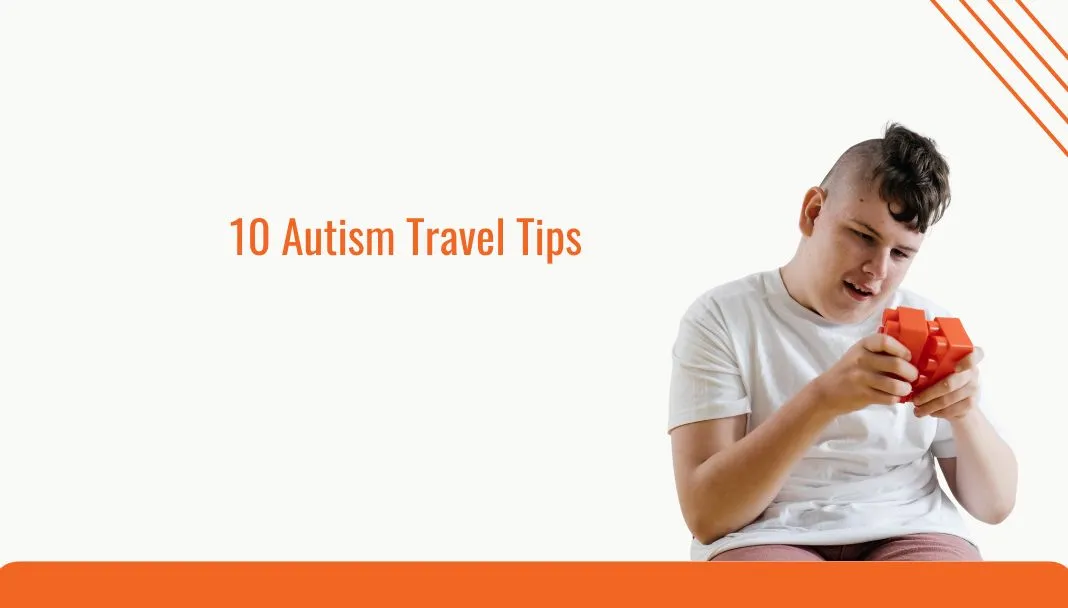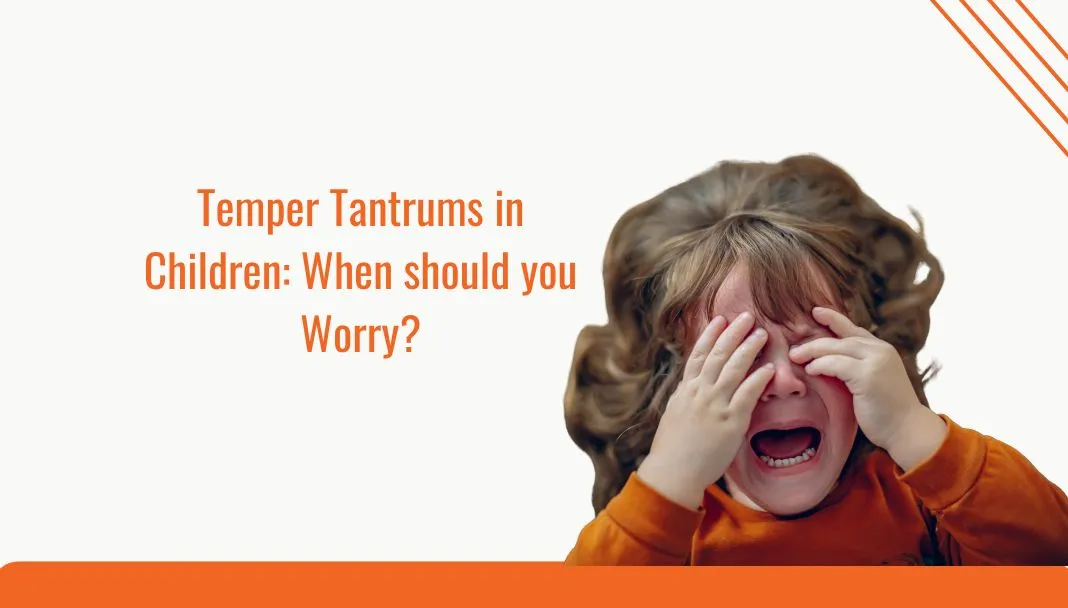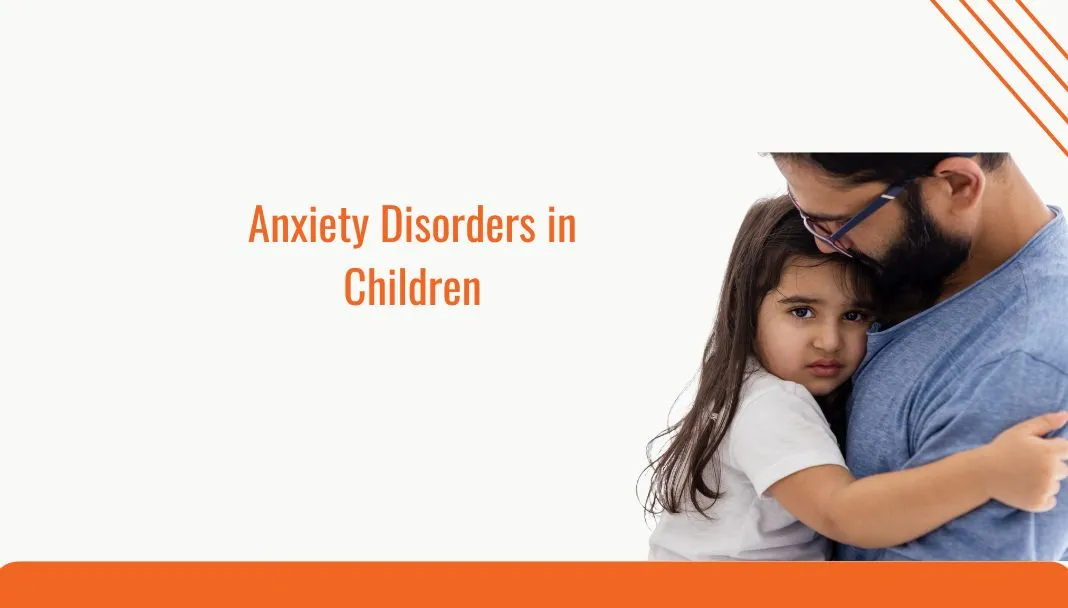It’s not unusual for children to feel nervous from time to time, before an exam, on the first day of school, or during a thunderstorm. But when that worry becomes persistent, overwhelming, or interferes with daily life, it might point to an anxiety disorder.
Anxiety affects focus and concentration, making it difficult for children to stay attentive in class, complete tasks, or retain new information.
In this blog, we’ll explore what causes anxiety in children, the common types of anxiety disorders, and how early support can help children regain confidence and thrive better.
What Causes Anxiety in Children?
Anxiety is a form of natural stress response. But when it occurs too often or too intensely, it can impact a child’s emotional and behavioural development.
Some common causes of anxiety in children can be:
- Genetics: Children having a family history of anxiety disorders are more likely to experience them.
- Brain chemistry: An imbalance in the brain chemicals, particularly serotonin and dopamine, can affect mood regulation.
- Life events: Divorce, the loss of a loved one, changing schools, or being bullied can trigger ongoing worry.
- Parenting style: Overprotective or overly critical parenting may increase a child’s anxiety.
- Medical factors: Conditions like ADHD or chronic illness may lead to or worsen anxiety.
Sometimes, children may appear to be feeling anxious for no reason, but a deeper look usually reveals underlying emotional or environmental stressors.
Common Types of Anxiety Disorders in Children
Children can show different forms of anxiety, each having a specific pattern of behaviours and triggers.
Common types of anxiety disorders can include:
1. Separation Anxiety Disorder
This anxiety can be seen commonly in younger children. It’s more than just crying at preschool drop-off; children with separation anxiety disorder experience intense fear when apart from parents or caregivers, even in safe environments.
Symptoms include:
- Fear of something unfortunate happening to a parent when they’re apart
- Refusal to go to school or sleep alone
- Physical complaints like stomach aches without a medical cause
2. Social Anxiety Disorder
This disorder specifically displays an intense fear of social situations, where a child can worry about being judged, embarrassed, or rejected.
A child with social anxiety disorder may:
- Avoid talks in class or interaction with peers
- Feel sick, tremble or blush during social interactions
- Avoid making eye contact or participating in group activities
3. Generalised Anxiety Disorder (GAD)
Children with GAD worry about a wide range of everyday things, school performance, health, safety, or world events. The worry is excessive, hard to control, and can cause physical symptoms mimicking headaches, stomach pains or fatigue.
4. Specific Phobias
It includes intense fears of specific objects or situations (e.g., dogs, the dark, needles). The fear is disproportionate and can severely limit a child’s willingness to engage in everyday activities.
5. Panic Disorder
This involves repeated episodes of panic attacks, sudden, intense fear with symptoms like rapid heartbeat, shortness of breath, or dizziness. Panic attacks can occur unexpectedly, often leaving the child frightened of a repeat episode.
Signs of Anxiety in Children: What to Watch For

Recognising the signs of anxiety in children can help in preventing long-term emotional issues.
Symptoms of anxiety can vary from child to child.
The commonly seen indicators are:
- Recurrent headaches or stomach aches without any medical reason
- Difficulty concentrating on studies
- Affected academic performance
- Trouble falling or staying asleep
- Avoidance of social or school situations
- Excessive clinginess or fear of being alone
- Outbursts of anger or irritability
- Constant reassurance-seeking
Some children may not express their worries verbally, making it important to watch for behavioural changes and physical complaints.
Helping Your Child Cope with Anxiety
When your child shows signs of an anxiety disorder, early intervention is always key. You can support them with gestures, compassion and communication.
- Stay calm and reassuring: Your response helps shape how your child processes fear. Stay patient and validating.
- Keep routines consistent: Predictable routines help reduce anxiety by creating a sense of security.
- Encourage open communication: Tell your child that it is fine to talk about fears and worries.
- Limit exposure to stress: While some stress is inevitable, monitor your child’s environment for unnecessary pressure.
- Use relaxation techniques: Breathing exercises, mindfulness, or child-friendly yoga can help them self-soothe.
- Seek professional support: If you feel anxiety is interfering with daily life, professional help can make a lasting difference.
When to Seek Expert Help
If your child’s fears are constant, excessive, and impacting their quality of life, it’s time to speak with a specialist.
Paediatric psychology experts can help in providing accurate diagnoses and tailor therapies as per the child’s needs.
Supportive environments, at home and school have a pivotal role in helping children manage anxiety.
Neuropedia: Your Partner in Paediatric Mental Health
At Neuropedia, we understand how confusing and overwhelming it can feel when your child is struggling emotionally. As the first paediatric neuroscience centre in the UAE, we offer comprehensive assessments and personalised treatment plans for children with anxiety disorders, ADHD, autism spectrum disorder, learning challenges, and more.
Our child-focused approach combines clinical expertise with compassionate care. Whether your child is experiencing separation anxiety, social anxiety disorder, or simply showing signs of chronic worry, we’re here to help them regain their confidence and joy.
Early Support Can Make All the Difference
Anxiety in children is more common than many realise, but it is treatable. Understanding what causes anxiety, recognising the early signs, and knowing the different types of anxiety disorders can help you take proactive steps toward your child’s well-being. With the right support, every child can learn to manage anxiety and thrive emotionally and socially.
Concerned about your child’s emotional health?
Book an appointment with our specialists today at Neuropedia and give your child the support they deserve.











 04 343 1113
04 343 1113 info@neuropedia.ae
info@neuropedia.ae







.png)







